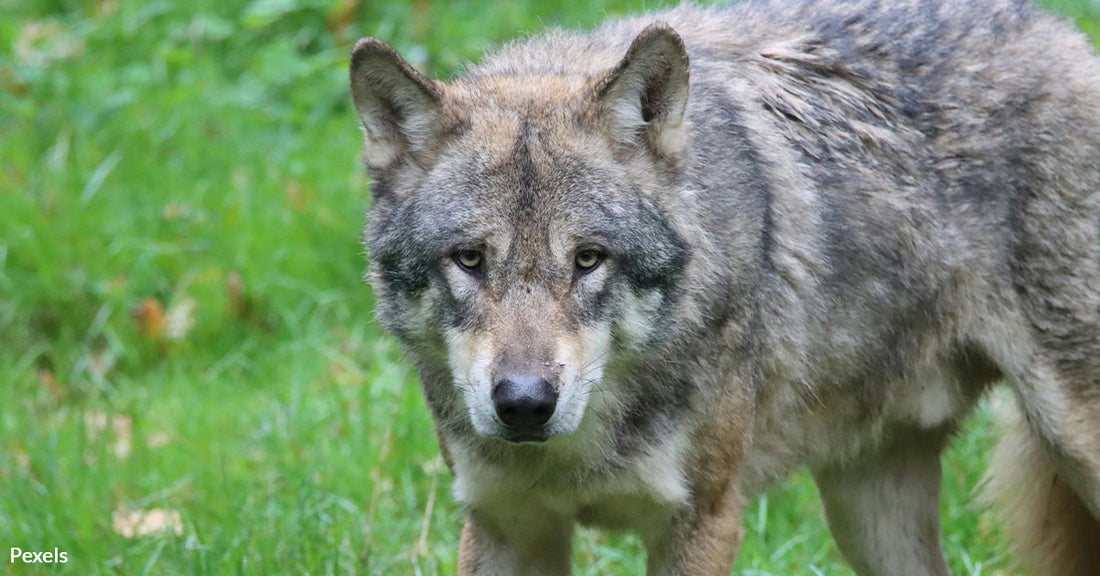Michigan Hunter Mistakes Rare Gray Wolf for Coyote in Shocking Wildlife Encounter
Matthew Russell
In a striking turn of events, what was initially thought to be an extraordinarily large coyote, turned out to be something much more significant.
A hunter in Calhoun County, Michigan, discovered he had actually shot a gray wolf, an animal that had not been seen in the southern reaches of the state for over a century.
 Photo: Pexels
Photo: PexelsA Michigan hunter mistakenly shot a gray wolf during a coyote hunt.
The Incident
During a legal coyote hunt, the hunter, alongside a guide, encountered and shot what he believed was a world-record-setting coyote due to its unusual size of 84 pounds—far exceeding the typical weight range for Eastern coyotes.
The confusion stemmed from the rare appearance of gray wolves in the area, which are predominantly found in Michigan’s Upper Peninsula, not the Lower Peninsula where the incident occurred, reports the Department of Natural Resources.
 Photo: Pexels
Photo: PexelsGray wolves are predominantly found in Michigan's Upper Peninsula.
Confirmation and Investigation
Subsequent genetic testing by the Michigan Department of Natural Resources (DNR) confirmed the true identity of the animal as a gray wolf. This finding prompted a deeper investigation into how the wolf came to be in a region where it was believed they had been extirpated since the early 20th century.
Brian Roell, a wildlife biologist and large carnivore specialist with the DNR, emphasized the rarity of this discovery and the ongoing efforts to determine the wolf’s origins.
“The DNR is actively delving into the matter to learn more about this particular animal’s origin,” Roell said. “While rare, instances of wolves traversing vast distances have been documented, including signs of wolves in recent decades in Michigan’s Lower Peninsula.”
 Photo: Pexels
Photo: PexelsThe last confirmed sighting of a gray wolf in southern Michigan was over a century ago.
Public Reaction and Conservation Efforts
The public’s initial reaction was one of astonishment, with the hunter even touting the kill as a potential world record for a coyote on social media, which quickly caught the attention of wildlife officials.
Gray wolves are protected under the Endangered Species Act, making their killing illegal unless posing an immediate threat to human life, the Associated Press reports. This legal protection underscores the importance of correctly identifying wildlife to prevent such rare and unfortunate incidents.
Michigan’s DNR seized all parts of the animal for further examination and to aid in the conservation efforts that aim to monitor and protect the state's wolf population, which includes an estimated 700 wolves in the Upper Peninsula.
 Photo: Pexels
Photo: PexelsGray wolves are protected under the Endangered Species Act.
Ecological and Cultural Significance
The gray wolf has significant ecological and cultural importance in Michigan. Their presence is crucial in maintaining the health of ecosystems, by naturally managing deer populations and thus forest vegetation. This incident highlights the complexity of wildlife management and the continuous learning process involved in conserving such species.
Looking Forward
While the presence of a wolf in Calhoun County is currently believed to be an isolated incident, it raises questions about the potential for other wolves to migrate into southern Michigan. The DNR continues to study the movement patterns and genetic markers of wolves across the state to better understand their behaviors and adapt conservation strategies accordingly, reports the Kansas City.
As investigations continue, the DNR urges the public to report any sightings of wolves, which can provide crucial data for ongoing research and help prevent future incidents. The discovery of the gray wolf in an unexpected location serves as a reminder of nature’s unpredictability and the need for continued vigilance in wildlife conservation efforts.

